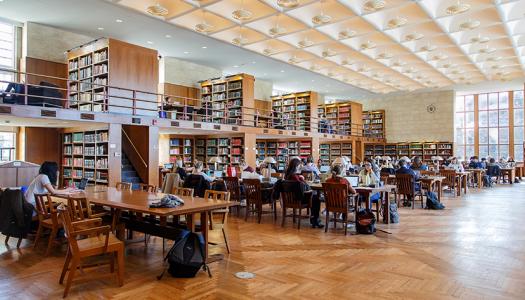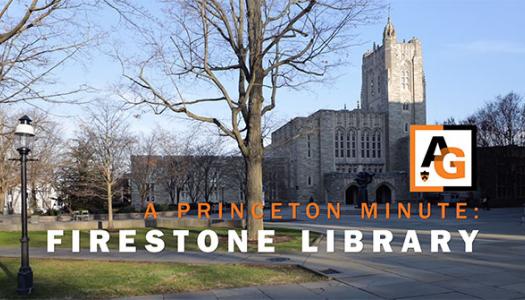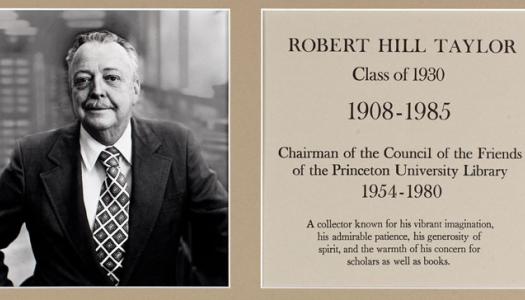Sidney Lapidus ’59 gift to Princeton University Library opens digital access to collection of rare Revolution-era books and publications
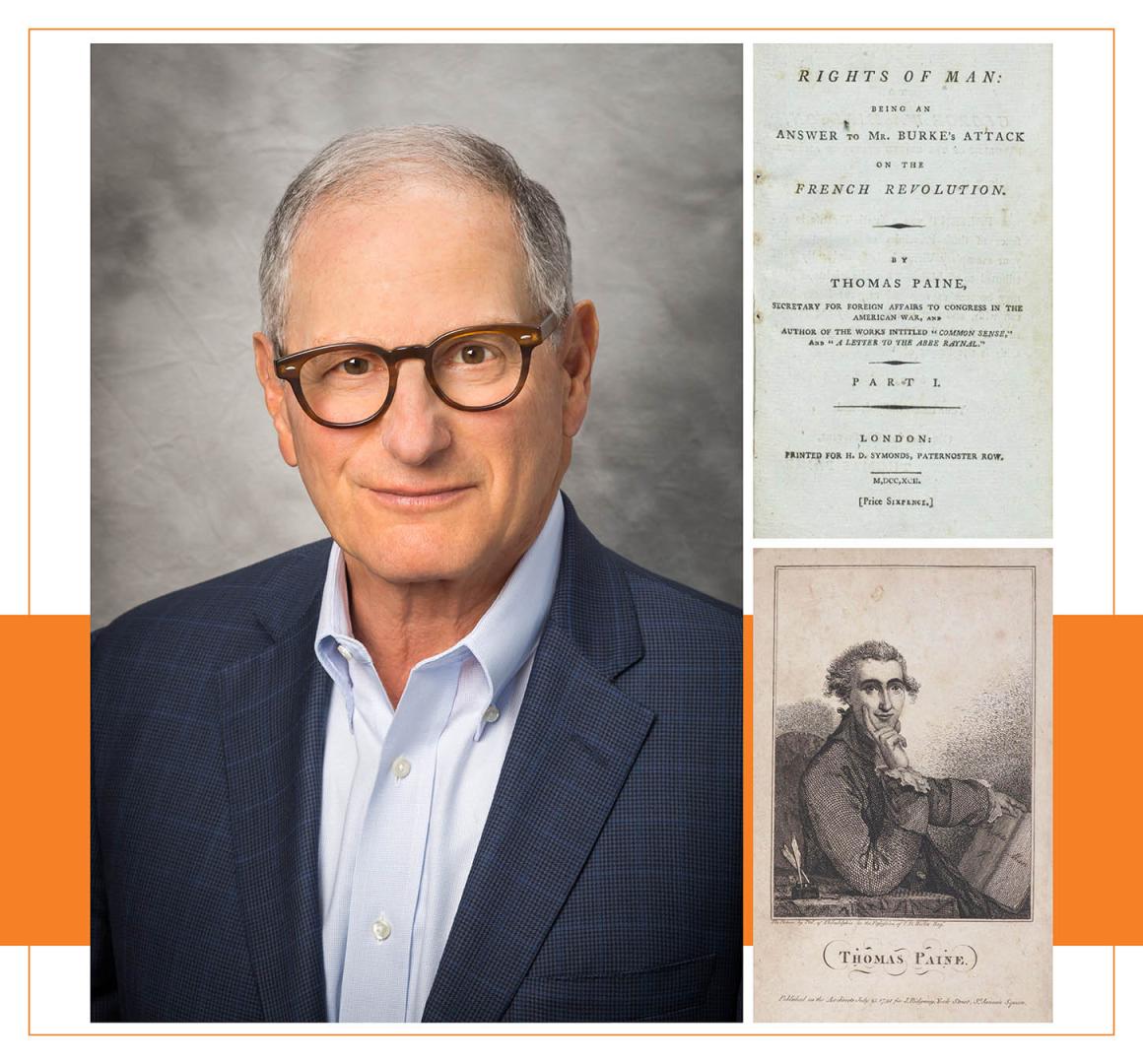
Courtesy of Sid Lapidus
Sidney Lapidus ’59 has donated a collection of rare Revolution-era books and publications to Princeton University as part of the Venture Forward campaign, enabling Princeton University Library (PUL) to greatly enrich the Sid Lapidus ’59 Collection on Liberty and the American Revolution. The collection includes more than 2,700 original books, atlases, pamphlets, newspapers and magazines relating to human and political rights, liberty, and independence around the time of the American Revolution. Lapidus also made a financial gift that enabled the PUL team to digitize the collection, making it keyword-searchable and openly available to the world.
“We are deeply grateful to Sid Lapidus for enabling scholars and students to access a deeper perspective on the ideas that animated the Enlightenment and the American Revolution through the digitization of his vast personal collection of books,” said President Christopher L. Eisgruber ’83. “His loyal support of Firestone Library and his love of literature, history and the artistry of books will benefit generations of Princetonians.”
Lapidus has collected rare books and other publications for more than 60 years. His first purchase inspired what became the theme of his collection. The summer after he graduated from Princeton, he visited London. “Peering through a dusty bookstore window in central London, I saw a 1792 edition of Thomas Paine’s ‘Rights of Man,’” Lapidus said. “It was less than $5 — about the most I could afford at the time. I bought it and that basically got me started collecting.”
Paine was already a semi-prominent figure in Lapidus’ life. The Thomas Paine Cottage, where the “Common Sense” writer lived near the end of his life, is located across the street from Lapidus’ high school in New Rochelle, New York. “I had some excellent teachers at New Rochelle High School and when they taught us Paine, I thought, ‘This guy speaks to me,’” Lapidus said. “I felt like he was my neighbor, so seeing that book in London brought me back home in a way. Of all the pieces in my collection, that was always the one that meant the most to me.”
Lapidus’ personal collection also includes rare books and pamphlets related to the abolitionist movement as well as the expansion of religious liberty and civil rights, particularly for the Jewish community on both sides of the Atlantic, and he has donated portions of his collection to other institutions. He provided pieces from his collection to help establish the Lapidus Center for the Historical Analysis of Trans-Atlantic Slavery at the New York Public Library’s Schomburg Center for Research in Black Culture. Lapidus and his wife, Ruth, have also made numerous gifts to NYU Langone Health, including volumes from his private collection that now reside in the Sid and Ruth Lapidus Health Sciences Library at NYU Langone.
Lapidus first shared his collection with the Princeton community in 1991, when he lent 21 British and American pamphlets from 1764-76 to Princeton University Library for an exhibition chronicling “The Road to Independence.” To celebrate his 50th Reunion in 2009, Lapidus loaned Princeton 157 of his books for another PUL exhibition, “Liberty and the American Revolution,” and ultimately donated those volumes to the library. In 2016, he contributed 40 other books from his collection for a Princeton history conference titled, “Fighting Words: Polemical Literature in the Age of Democratic Revolutions.”
With his most recent gifts, his 60 years of collecting centuries-old history are available not just to Princeton scholars, but also to researchers around the world. The Lapidus Collection on Liberty and the American Revolution is available online and, most importantly, it is fully searchable. The online collection represents more than 10,000 pages of digitization by the PUL team. The physical books are also available for consultation in the Special Collections Reading Room, and the PUL plans a special exhibition, “Sharing the Enlightenment: The Sid Lapidus ’59 Achievement,” for Spring 2025, celebrating his generosity by showing not only his contributions to Princeton but also his gifts to six other research libraries.
“Sid Lapidus has been a generous donor to the library for many years, and we are especially honored to become the stewards of his extensive collection of books on liberty and the American Revolution,” said the Robert H. Taylor 1930 University Librarian Anne Jarvis. “Having completed the digitization of the Sid Lapidus ’59 Collection, we look forward to researchers worldwide engaging with the materials through the library’s digital collections website.”
In addition to the gifts of his collection to Princeton, the Lapiduses have also endowed the Sidney and Ruth Lapidus Professorship in the American Revolutionary Era in the Department of History, as well as endowments for the Lapidus Family Fund for American Jewish Studies, the Sid Lapidus ’59 Research Fund for Studies of the Age of Revolution and the Enlightenment at the library, and the Ruth and Sid Lapidus ’59 Research Fellowships administered by Princeton’s Humanities Council. He has served on the advisory councils of both the Department of History and the Program in Judaic Studies.
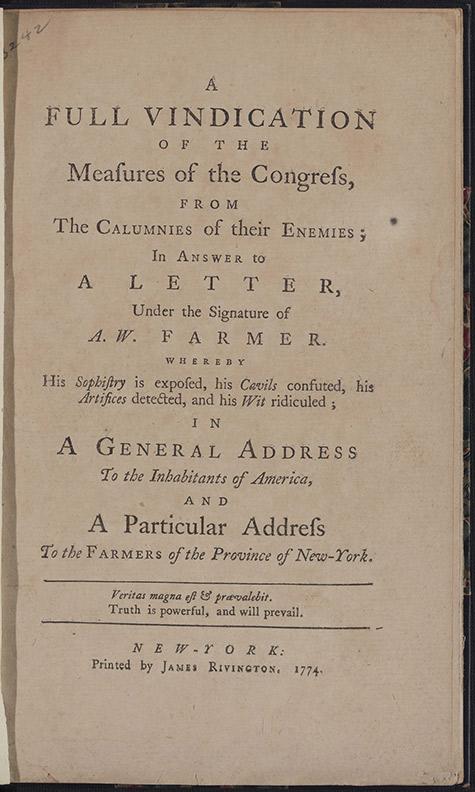
Lapidus was a longtime partner of Warburg Pincus, a leading private equity firm. He graduated from Columbia Law School in 1962 and worked for the Securities and Exchange Commission in New York before joining Warburg Pincus in 1967. He retired in 2007 but remains active on the board of directors for Lennar Corporation, a homebuilding company.
Lapidus has also served as chairman or board member of the American Antiquarian Society, the American Jewish Historical Society, the Center for Jewish History, the New-York Historical Society, NYU Langone, the Omohundro Institute of Early American History and Culture in Williamsburg, Virginia, the UJA-Federation of New York, and United Neighborhood Houses. In 2008, he received the Emma Lazarus Statue of Liberty Award for his commitment to the American Jewish Historical Society, and in 2012, he was named an ABAA Patron of Honor by the Antiquarian Booksellers’ Association of America.
“From the very beginning, these books were meant to be donated to academic institutions,” Lapidus said. “Princeton University Library provides a platform to show the connections between the English, French and American thinkers of this era. It’s a research tool so that students and scholars can learn about the Revolution from the writers of the time, because their ideas are evergreen: the Paines, the Alexander Hamiltons and the John Lockes are fundamental to creating a government by and for the people.”
